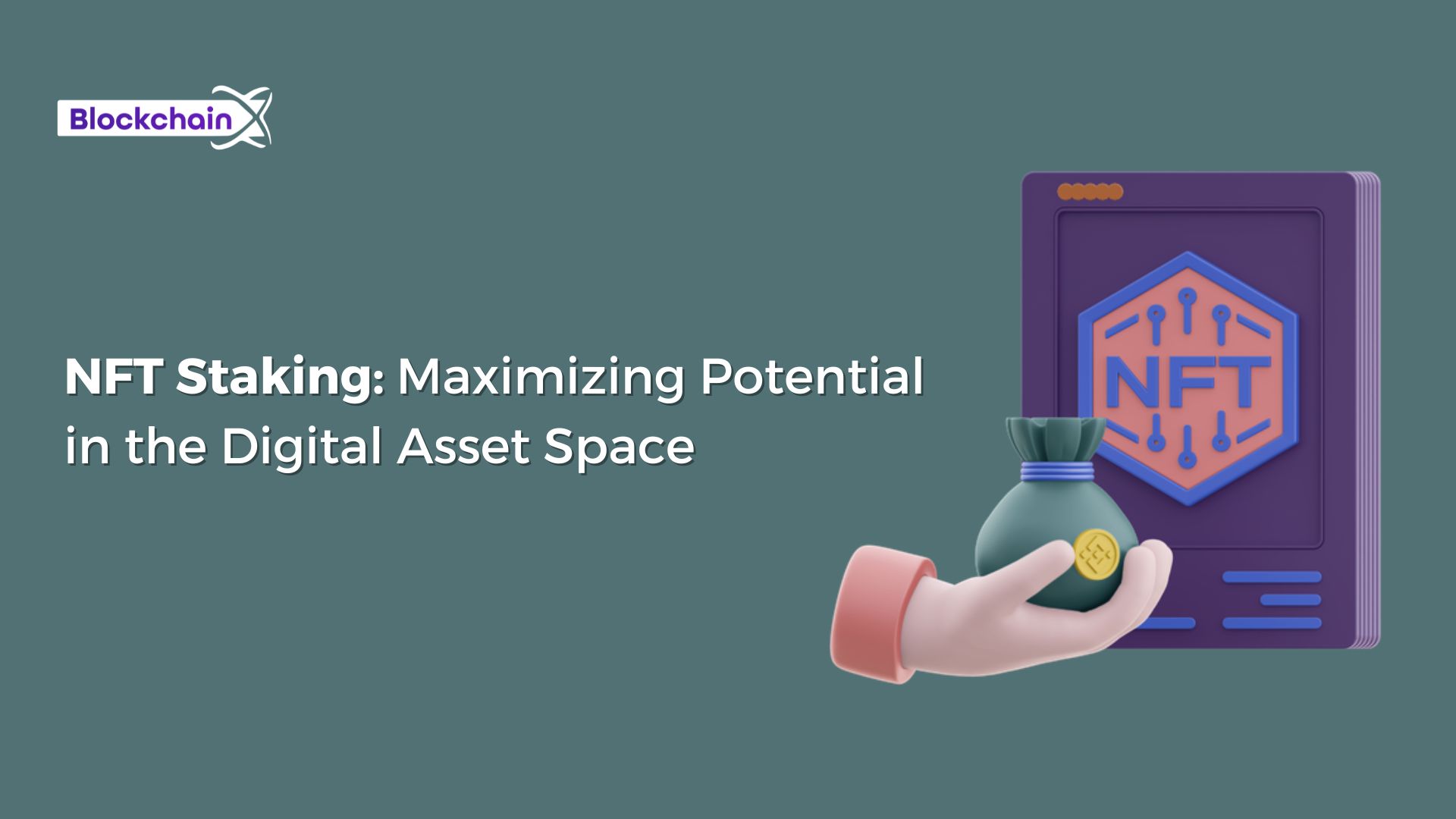Introduction :
In the rapidly expanding world of cryptocurrencies and blockchain technology, non-fungible tokens (NFTs) have gained significant attention and popularity. NFTs represent unique digital assets that can be bought, sold, and traded. While most discussions around NFTs have focused on their value as collectibles or digital art, a new concept has emerged that adds an additional layer of utility and income potential to these assets—NFT staking. In this article, we will explore the concept of NFT staking, its benefits, how it works, and the potential impact it can have on the NFT market and its participants.
Understanding NFTs :
Before delving into NFT staking, it's essential to understand the basics of NFTs. Unlike cryptocurrencies such as Bitcoin or Ethereum, which are fungible and interchangeable, NFTs are unique and indivisible. Each NFT is associated with specific metadata and ownership information, making it one-of-a-kind. NFTs can represent various digital assets, including digital art, collectibles, virtual real estate, virtual items in games, and more. They are typically bought and sold on blockchain-based marketplaces, with ownership and transaction history recorded on a distributed ledger, ensuring transparency and provenance.
What is NFT Staking?
NFT staking is a concept that combines the features of staking and non-fungible tokens. Staking, commonly associated with cryptocurrencies, involves locking up a certain amount of tokens in a smart contract to support the network's operations and, in return, earning rewards. In the case of NFT staking, instead of staking tokens, NFT holders stake their digital assets, which are then utilized to support various platforms, projects, or decentralized applications (dApps). In exchange for staking their NFTs, participants can earn additional rewards, such as tokens, in-game assets, or exclusive benefits tied to the staked NFT.
Benefits of NFT Staking :
NFT staking offers several benefits to both NFT holders and the overall ecosystem:
Passive Income Generation: By staking their NFTs, owners can earn a passive income in the form of additional tokens or assets. This provides a new revenue stream for NFT holders, allowing them to monetize their digital assets beyond the initial purchase.
Increased NFT Liquidity: Staking NFTs can enhance their liquidity. Instead of waiting for potential buyers to show interest, staking allows NFT holders to generate income even when the assets are not actively traded.
Support for Ecosystems: NFT staking helps projects and platforms by providing them with a pool of staked NFTs. This can be leveraged by developers and dApps to enhance functionality, create new experiences, or add value to their ecosystems.
Enhanced Governance Rights: Some staking mechanisms provide additional governance rights to NFT holders. By staking their NFTs, participants may gain voting power in decision-making processes, influencing the future direction of projects or platforms.
How Does NFT Staking Work?
NFT staking mechanisms can vary depending on the platform or project. Here is a general overview of how NFT staking works:
Choosing a Staking Platform: NFT holders need to select a staking platform that supports their desired digital asset. These platforms typically provide staking options and details regarding the rewards and benefits associated with staking.
Staking Process: After selecting a platform, NFT holders transfer their digital assets to the platform's staking smart contract. This contract holds the NFTs securely while ensuring the staker's eligibility for rewards.
Earning Rewards: Once the NFTs are staked, participants start earning rewards based on the platform's rules and conditions. These rewards can be in the form of additional tokens, in-game assets, exclusive benefits, or a combination of these.
Unstaking: NFT holders can typically unstake their assets at any time by initiating the unstaking process. However, there might be specific lock-up periods or conditions associated with unstaking, depending on the platform's rules.
The Impact of NFT Staking :
NFT staking has the potential to revolutionize the NFT market by introducing new utility and income streams for participants. Here are some potential impacts of NFT staking:
Value Enhancement: Staking can increase the value of NFTs by providing additional benefits and rewards. This, in turn, can attract more buyers and investors, driving up demand and potentially increasing the market value of NFTs.
Ecosystem Growth: Staking NFTs can provide valuable resources and support to projects and platforms. This can foster the development of vibrant NFT ecosystems, encouraging innovation, collaboration, and the creation of new experiences.
Democratization of Rewards: NFT staking allows participants of various financial backgrounds to earn rewards and benefits. This democratization can make the NFT space more inclusive and accessible, reducing barriers to entry for individuals who may not be able to afford high-value NFTs.
NFT Market Maturation: As staking becomes more prevalent in the NFT market, it can help stabilize and mature the ecosystem. By introducing additional utility and income-generating mechanisms, what is NFT staking can provide incentives for long-term participation and reduce the volatility often associated with speculative trading.
Conclusion :
NFT staking represents an exciting development in the world of non-fungible tokens, offering additional income potential and utility to NFT holders. By staking their digital assets, participants can earn passive income, enhance liquidity, support ecosystem growth, and potentially influence project governance. As the NFT market continues to evolve, it is essential for NFT holders and enthusiasts to explore the potential of staking as a means of maximizing the value and benefits derived from their unique digital assets.






